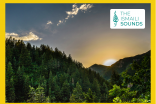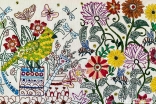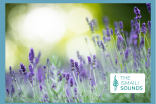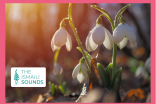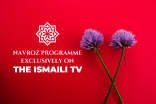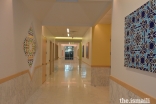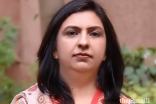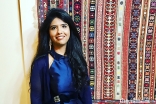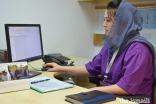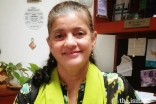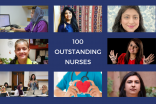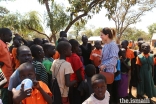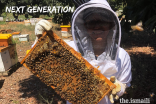Content Tagged with Global
Today, The Ismaili brings you Nairouzel-Mahaba Wal Khaeer (Navroz is Love and Grace). This Syrian Nasheed, performed in Arabic, is dedicated to the joy and radiance of the occasion of Navroz.
Visual art has always been a powerful medium of expression; bridging divides and bringing people together. During a time of physical distance between one another, art takes on an additional dimension, offering the ability to connect with others and with oneself. In response, the UK jurisdiction Jamat launched the heARTspace initiative. Participants were given a very simple brief: their artwork should come from the heart.
The Ismaili is pleased to present Naya Din (New Day) performed by Fitoor the Band, inspired by the occasion of Navroz. The song describes the natural beauty of the spring season and encourages us all to keep this beauty alive for generations to come.
To coincide with Navroz, The Ismaili is pleased to present a collection of songs in various languages in the days leading up to Navroz. The first one is entitled The Light of Navroz, which highlights that although we might be celebrating separately, we remain united as One Jamat.
Next weekend, the Jamat around the world will celebrate Navroz, marking the beginning of a new year and the first day of spring. The Ismaili TV is pleased to present a two-day Navroz programme featuring programmes in multiple languages for children and adults alike.
On 21 March 2020, as nation after nation succumbed to the largest lockdowns of our time, Mawlana Hazar Imam issued a directive to establish a Covid-19 Global Task Force and Steering Committee to coordinate the Jamati and Aga Khan Development Network (AKDN) response to the novel coronavirus outbreak.
Last March, the World Health Organization declared the coronavirus outbreak to be a global pandemic. After 12 months of mixed emotions and disruption to our lives, what have we learned, and where do we go from here?
This week, on the third episode of The Ismaili TV’s Trailblazers, we are joined by Latif Nasser, the host and executive producer of the Netflix documentary series ‘Connected: The Hidden Science of Everything’, and host of two podcast series’. He received a PhD in the history of science from Harvard University and is the recipient of the 2021 duPont Columbia Award for his series ‘The Other Latif’.
Art historians and enthusiasts often recognize the 10th through 13th centuries as a period that marked an increase in the usage of symmetrical, geometric patterns in the Muslim world. Most likely aided by Muslim mathematicians, artists and artisans produced a large variety of designs. Many of these geometric models developed interpretations of ornament that embody metaphysical intent.
The Ismaili is pleased to present Ya Ali, Ya Ali, a song in praise of the first Imam. The video was filmed in the Canadian Rocky Mountains, among scenery of snowy peaks, evergreen trees, and crystal clear lakes, reminding us of the beauty of the natural world.
Yasmin Nadeem Parpio, an Assistant Professor at Aga Khan University’s School of Nursing and Midwifery (AKU-SONAM), is an advocate for mental health and wellbeing and was recently recognised as one of the World Health Organization’s 100 Outstanding Nurses and Midwives. Yasmin is a public health nurse and also the first regional coordinator from South Asia to represent the Middle East Region in the Sigma Theta Tau International Honor Society of Nursing.
When choosing to breastfeed, new mothers are often faced with uncertainty on how to best support their baby’s health. What should a breastfeeding mother’s diet look like? Is it safe to consume caffeine? What about other medications? Covid-19 further complicated breastfeeding, adding the question of whether the virus could be spread through a mother’s breast milk. Dr Shela Hirani was recently recognised as one of the World Health Organization’s 100 Outstanding Women Nurses and Midwives for her work in supporting breastfeeding practices during the global pandemic.
Even before a baby is conceived, lifestyle factors can influence the health of the fetus and child. It was this fact that motivated Saima Sachwani, assistant professor at the Aga Khan University’s School of Nursing and Midwifery, to pursue a career in public health as a researcher. She was also recently recognised as one of the World Health Organization’s 100 Outstanding Nurses.
Sadaf Saleem Murad wears multiple hats: providing care as a bedside nurse in dementia lockdown units, working as a lecturer at the University of Alberta undergraduate nursing department, and serving as a research assistant and PhD candidate investigating rehabilitation in older adults with dementia. Sadaf was also recently recognised as one of the World Health Organization’s 100 Outstanding Nurses and Midwives.
Neelam Punjani graduated from the Aga Khan University as a nurse and has gone on to expand the boundaries of women’s reproductive health in Pakistan through her clinical experience and research. Now, she has appeared on the World Health Organization’s list of 100 Outstanding Nurses and Midwives.
Afghan midwife and nurse Shukria Hussaini was born in 1990 during the Civil War in Afghanistan. Very quickly after seeking asylum in Pakistan, she became familiar with the work of AKDN and the Jamati institutions, particularly the educational sectors that focused on English learning. Today, Shukria finds herself on the World Health Organization’s list of 100 Outstanding Nurses and Midwives.
Samina Vertejee, an assistant professor at the Aga Khan University’s School of Nursing and Midwifery (AKUSONAM), paved the way for many nurses during her professional journey as a public health nurse. For this, and many other reasons, she recently appeared on the World Health Organization’s list of 100 Outstanding Nurses and Midwives.
Nine Ismaili nurses and midwives have been honoured in the World Health Organization’s 100 Outstanding Nurses and Midwives list, in recognition of their vital role in providing health services. Throughout their careers, they have worked to promote women’s health and empowerment in their respective regions and beyond.
Farah Williamson’s story is multi-faceted. As a 10-year-old girl, she had to flee her home country, Rwanda, during the 1994 genocide. Today, Farah is the co-founder of Project Shelter Wakadogo, a not-for-profit school in Gulu, Uganda. Farah speaks about these experiences and more in the second episode of The Ismaili TV’s original series Trailblazers.
The complex challenges facing our increasingly volatile world — from climate change to rural development to security — are also a source of opportunity for the next generation of leaders and changemakers. Around the world, young Ismailis like Rufayda Dhamani, Nurmuhammad Butabekov, and Aleem Rehmtulla are taking creative approaches to address these issues and prepare for the future of the global economy.


